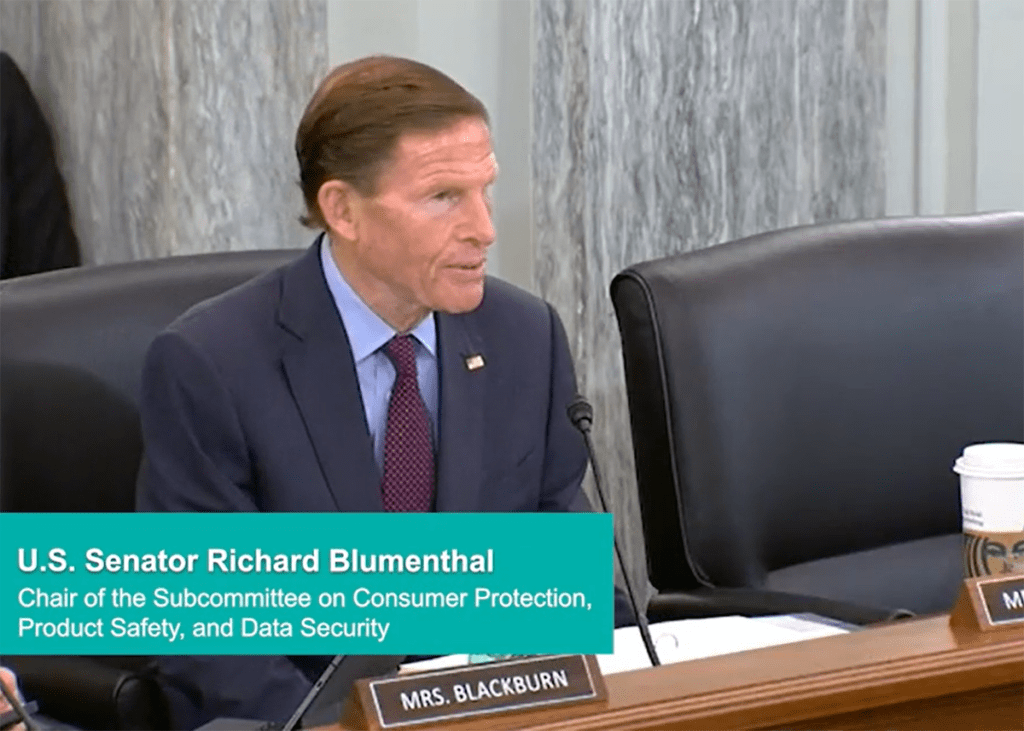Pharmacy benefit managers (PBMs) are “part of a broken drug supply chain,” Sen. Richard Blumenthal (D-CT) told a Senate hearing about “Ensuring Fairness and Transparency in the Market for Prescription Drugs” on Thursday.
“PBMs are companies that manage prescription drug benefits on behalf of private health insurers, Medicare Part D drug plans, large employers, and other payers,” according to the Federal Trade Commission (FTC) “The largest PBMs are vertically integrated with health insurance companies and specialty pharmacies, giving them financial incentives to steer patients to use their affiliated services.”
As our analysis explains, if a drug manufacturer prices a drug at $1000, a PBM often is able to negotiate that price down by 50% in exchange for putting those drugs on their formulary, but these savings are not necessarily passed on to patients.
“I have heard that PBMs are not allowing the discounted savings to go to the community health centers and the patients they serve,” Sen. Blumenthal said Thursday at the hearing organized by the Senate Commerce Committee’s Subcommittee on Consumer Protection, which he chairs. “PBMs also limit choice. PBMs are the ones that decide which prescription drugs your health plan will cover, and which they won’t. They determine which drugs will be preferred by your insurance plan, meaning which drugs will cost you more out of pocket, and which will cost you less.”
Sen. Marsha Blackburn (R-TN), who convened the hearing along with Sen. Blumenthal and Sen. Maria Cantwell (D-WA), criticized the Centers for Medicare and Medicaid Services (CMS) for delaying the final policy on pharmacy price concessions at the point of sale to January 1, 2024, saying it gives PBMs “another year to play games.”
Seeking legislation and greater FTC control
The three participating senators voiced support for the Prescription Pricing for the People Act (S. 1388), proposing that the rebates PBMs are able to take advantage of should be eliminated altogether, or at least there should be rebate transparency.
The senators agreed that Congress must look into this issue, and also investigate the Federal Trade Commission’s (FTC) authority over the issue—and grant permission to the FTC to enforce penalties.
The Biotechnology Innovation Organization (BIO) submitted comments about PBMs to the FTC on the day of the hearing. There’s “increasing complexity in both the number of supply chain intermediaries and relationships between those entities have created a shadow market that ultimately harms…patients,” BIO said. Consolidation in the PBM market limits patient access to needed medicines and increases costs to consumers and taxpayers.




